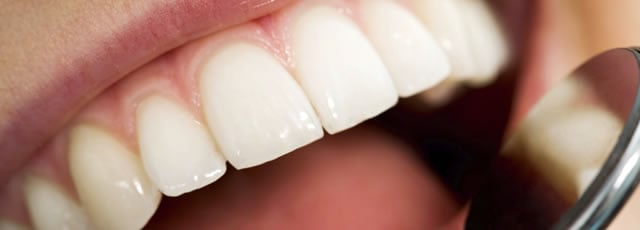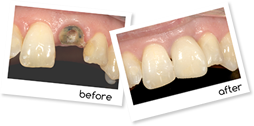Dental Hygiene & Treatment of Gum Disease
Regular check-ups and Hygienist appointments can play a vital role in helping you prevent tooth, mouth and breath problems.
Regular sessions not only ensure that you have the build-up of deposits and plaque removed from your teeth, but they also allow us to assess and instruct you on the best ways to keep your teeth and gums healthy.
Hygiene Aftercare for Your Implant(s)
Aftercare is vital if you are going to have a long-lasting, successful Implant: Just like your natural teeth, you need to care for and clean your dental Implants to prevent plaque and bacteria that form around an Implant causing inflammation known as peri-implantitis. Daily cleaning of all the surfaces above and below the gum-line is therefore very important.
Cleaning around the teeth attached to the Implants is no more difficult than cleaning natural teeth, however, there may be areas that are difficult to reach and a visit to one of our Hygienists every 2-3 months is critical in Implant maintenance to ensure a professional clean and guidance on the best way to maintain your individual Implant(s) at home.
The Role of the Hygienist with Implants
The Hygienist is critical in implant maintenance and we hope the following information gives you a better insight into what the Hygienist is assessing when you visit them:
1. Interview. The Hygienist will begin by asking you several questions: e.g. “How does the implant feel? Do you notice any bleeding or pus when you brush your teeth? Do you have any bad taste around the implant? Do you have any pain?”
2. Tissue evaluation. The Hygienist will evaluate the tissue surrounding your implant(s) for colour, tone, texture, inflammation, redness, bleeding, mobility and pus.
3. Scaling:
- Implants surrounded by healthy tissue don’t require scaling, but a light polish using a fine polishing paste and rubber cup is appropriate.
- Where the tissue is unhealthy (deep pocket depth with bleeding or pus), we use a cavitron tip, especially designed for implant maintenance, on low power.
- After the polish, we may use an irrigating syringe with chlorhexidine gluconate or Floss soaked in chlorhexidine around the implant. Betadyne can also be used as an irrigant in patients who are not allergic to iodine.
4. Home care instructions. The Hygienists will review the steps of implant care with you. Our view is that implants need to be maintained aggressively: Daily flossing is essential along with twice daily brushing. (Electric or sonic toothbrushes are OK only a week or two after the implant is restored.)
5. Documentation. The Hygienist will help to ensure that even the slightest symptoms can be identified to minimize potential future problems and that these can be brought to your Dentist’s attention.
In addition, regular 6-montly check-ups with your dentist will assess and monitor gum attachment and underlying bone support for your Implants as well as monitor the health of the rest of your mouth.
Frequently Asked Questions
What must I remember for taking care of my Implants?
How can I care for removable dentures?
Why is it so important to keep these emergence areas clean?
Can I also clean the emergence points with dental floss?
What is the purpose of a Hygienist clean?
What toothbrush is right for me?
Can I use an electric toothbrush?
Do you recommend a dental water jet?
Can I use Whitening Toothpaste with implants?
Is mouthwash suitable?









